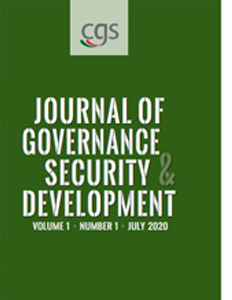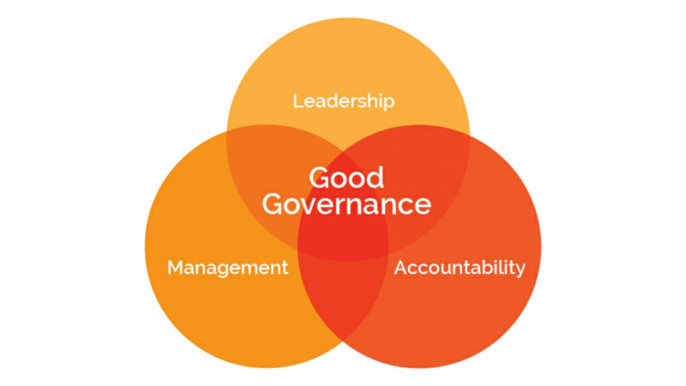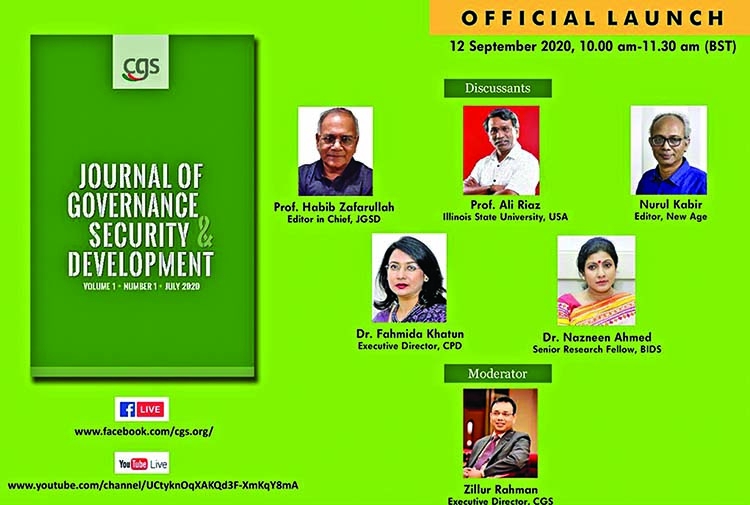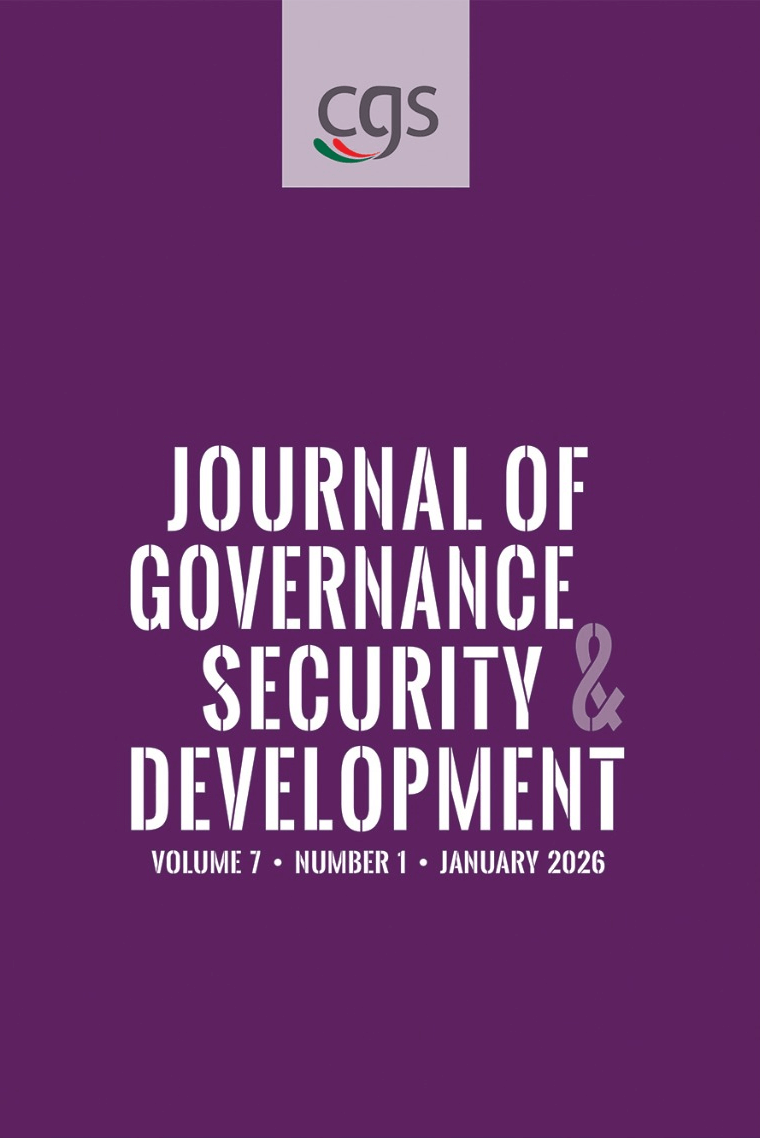Content Details
Thursday, December 17, 2020
An Academic Journal Around Corner
THE maiden issue of the Journal of Governance, Security, and Development is a classic elucidation of academic and research excellence. As a prelude, the editorial provided by Professor Zafrullah, an academic par excellence, is truly befitting, candid, and it rightly carries the vision and direction of the journal. He has clearly given an overview of the terms ‘governance’, ‘security’ and ‘development’. It can be concluded the journal is in safe hand to make its mark in intellectual corridors far and wide.
Zahid Khan and Dominik Zaum cover the entire spectrum of the global war on terrorism which is still looming large. They rightly portray the cognitive, regularity and capability-building pathways that transcend any national boundary. These are clearly effective pathways to forestall any impending state fragility. This article is a fascinating research work per se.
Fahmida Khatun, a renowned economist, covers both sides of the coin of development. Her concern is with sustainability which I do endorse strongly. What is plaguing Bangladesh greatly is its social inequality — which is growing at an exponential pace — that tends to erode the social fabric of the country. This may lead to social chaos and instability if proper governance, development, and right standard of ethical code are not put in place. Her paper rightly points out the criticality of institutional reforms and distributional justice in Bangladesh. This is another piece of superb research work.
Ali Riaz, a great political scientist, who has published widely and deeply on Bangladesh politics and its history, shows his concern about the pseudo-democratic rule that is again likely to weaken an effective state functioning. He is always an avid reader of Bangladesh politics and its ramifications. His conclusion is attention-drawing in the sense that the state of Bangladesh is embracing an exclusionary authoritarian political settlement and imposition of coercive force. He further concludes Bangladesh seemingly suffers from legitimacy crisis.
GM Shahidul Islam brings home the point of the role of a vibrant media. Media can greatly influence thinking and practice of governance. He has so candidly brought home the point that political journalism is sine quo non in addressing governance, security and development. He observes political journalism is undergoing changes and reinventing itself as a craft. The media can be manipulated towards one’s own benefit which is so true.
Md Mujahedul Islam concludes in his paper greater levels of globalisation increase fairness in election conduct given that in a country there exists competent and fair political institutions. It further concludes the absence of viable democratic institutions may not necessarily ensure free, fair and neutral elections notwithstanding there is an increased level of globalisation. It is laudable that the paper uses the time-series cross-sectional statistical model using the 2015 Quality of Government dataset. The paper, however, could be more qualitative than quantitative. This is my personal preference.
Mohd Tahir Ganie highlights ramifications of rescinding the semi-autonomous status — constitutionally guaranteed under Article 370 — of Jammu and Kashmir. This is likely to have a serious security repercussions both internally and externally although at the moment it is enjoying a relative calm. All the three powers involved here are nuclear-armed. This is going to further re-ignite civilisational overtones of the crisis.
All said and done, the issue is an outstanding discourse especially for the scholars and intellectuals of Bangladesh and the people, at large. It is, indeed, a neat work, methodical — comprehensive as well — that critically delves into serious issues that generally affect the perspectives and future course of Bangladesh. This is a job so superbly done that it should be carried forward for the sake of a better Bangladesh.
The issue adds great value to the present body of literature. The papers are all objective and neutral from academic point of view. At times, a few of the papers may not be that politically palatable — seemingly not neutral — but that is how objective research goes.
I wish the journal a good luck in its journey. An attempt may be made to get this journal indexed in the ‘web-of-science’ journals. I think it rightly deserves so.
Mohd Aminul Karim is a professor at Independent University, Bangladesh.






